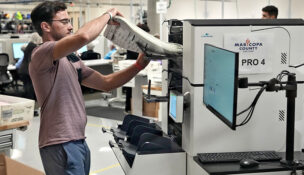Panel to study funding of GPS monitoring for sex offenders
Arizona Capitol Reports Staff//November 2, 2007//[read_meter]
Panel to study funding of GPS monitoring for sex offenders
Arizona Capitol Reports Staff//November 2, 2007//[read_meter]
At a time when the state is facing hundreds of millions of dollars of red ink, a panel hearing updates on the satellite monitoring of sex offenders is likely to...
No tags for this post.

















